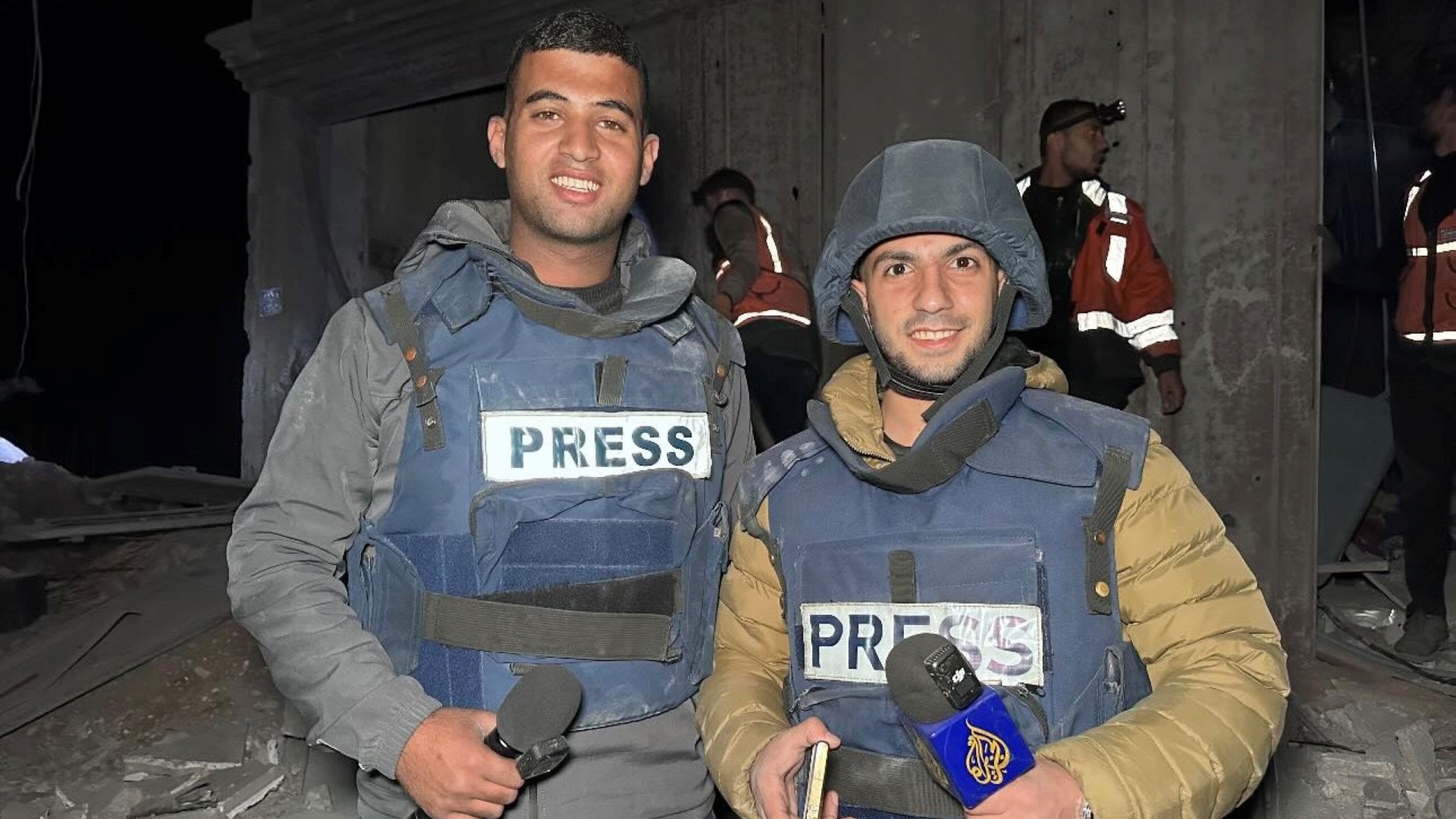‘How Many More Hossam’s Must Perish for This to End?’
Photo by Hossam Shabat on X
The targeted killing of 23-year-old Palestinian journalist Hossam Shabat on March 24 came after months of ceaseless harassment from Israeli occupation forces who would torment him with threatening phone calls and messages, demanding he stop his coverage from the besieged Gaza Strip. These false accusations, Hossam once wrote, “constitute the threat of assassination and a clear attempt to justify our preemptive killing.” Even after being placed on a kill list and then deliberately targeted by Israeli drones in November 2024, which left him injured, he returned to the field and kept reporting from on the ground in Gaza. In February, after 492 days without seeing his mother, they were reunited, a joyous occasion that some believed marked the end of the genocide—not even one month later, his grieving mother would collapse at the sight of her son, dressed in his press gear, now a martyr. Hossam Shabat is one of 208 Palestinian journalists killed by Israel in Gaza since October 7, 2023. In his final message, published by his colleagues and written in case of his martyrdom, he emphasized his dedication to his homeland and called on the world not to look away.
“By God, I fulfilled my duty as a journalist. I risked everything to report the truth, and now, I am finally at rest—something I haven’t known in the past 18 months,” Shabat wrote. “I did all this because I believe in the Palestinian cause. I believe this land is ours, and it has been the highest honor of my life to die defending it and serving its people. I ask you now: do not stop speaking about Gaza. Do not let the world look away. Keep fighting, keep telling our stories—until Palestine is free.”
Palestinian writer and poet Refaat Alareer, killed by an Israeli airstrike in December 2023, once wrote that “a Palestinian in Gaza born in 2008 has witnessed seven wars: 2008–2009, 2012, 2014, 2021, 2022, 2023A and 2023B. And as the habit goes in Gaza, people can be seven wars old or four wars old.” Hossam Shabat was born into and forced to endure the man-made siege of his land, and decades of massacres that took not only his youth, but his life. “Last year, around this time, I was a journalism student worrying about my exams,” Hossam wrote. “I never thought I would be given the biggest assignment of my life just a week later. I didn’t know that instead of taking my final exam, I would be covering the genocide of my own people. That young college student is long gone; what I witnessed in the past year changed me forever.”
-

-

-

-

-

-

-

-

-

-

-

-

-

-

-

-

-

-

-

-

-

-

-

-

-

-

-

-

-

-

-

-

-

-

-

-

-

-

-

-

-

-

-

-

-

-

-

-

-

-

-

-

-

-

-

-

-

-

-

-

-

-

-

-

-

-

-

-

-

-

-

-

-

-

-

-

-

-

-

-

-

-

-

-

-

-

-

-

-

-

-

-

-

-

-

-

-

-

-

-

-

-

-

-

-

-

-

-












































































































